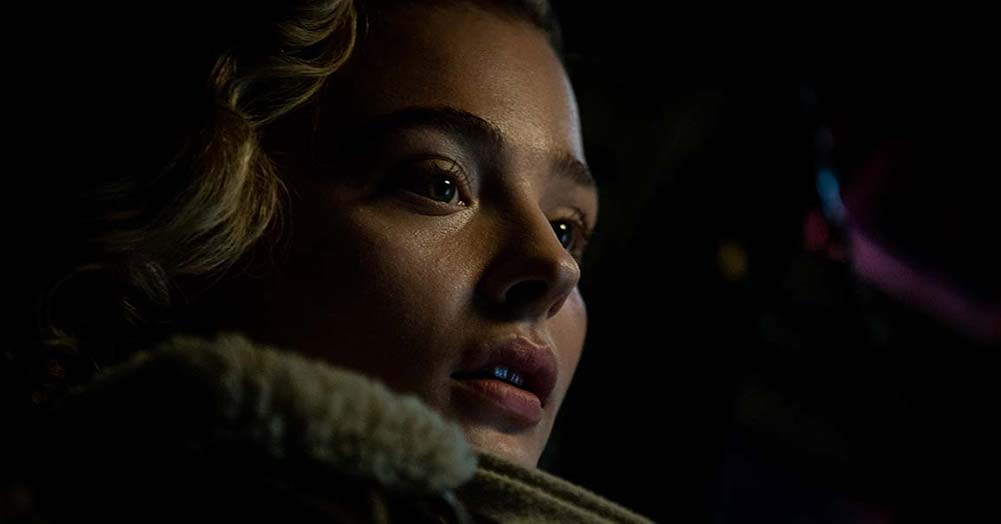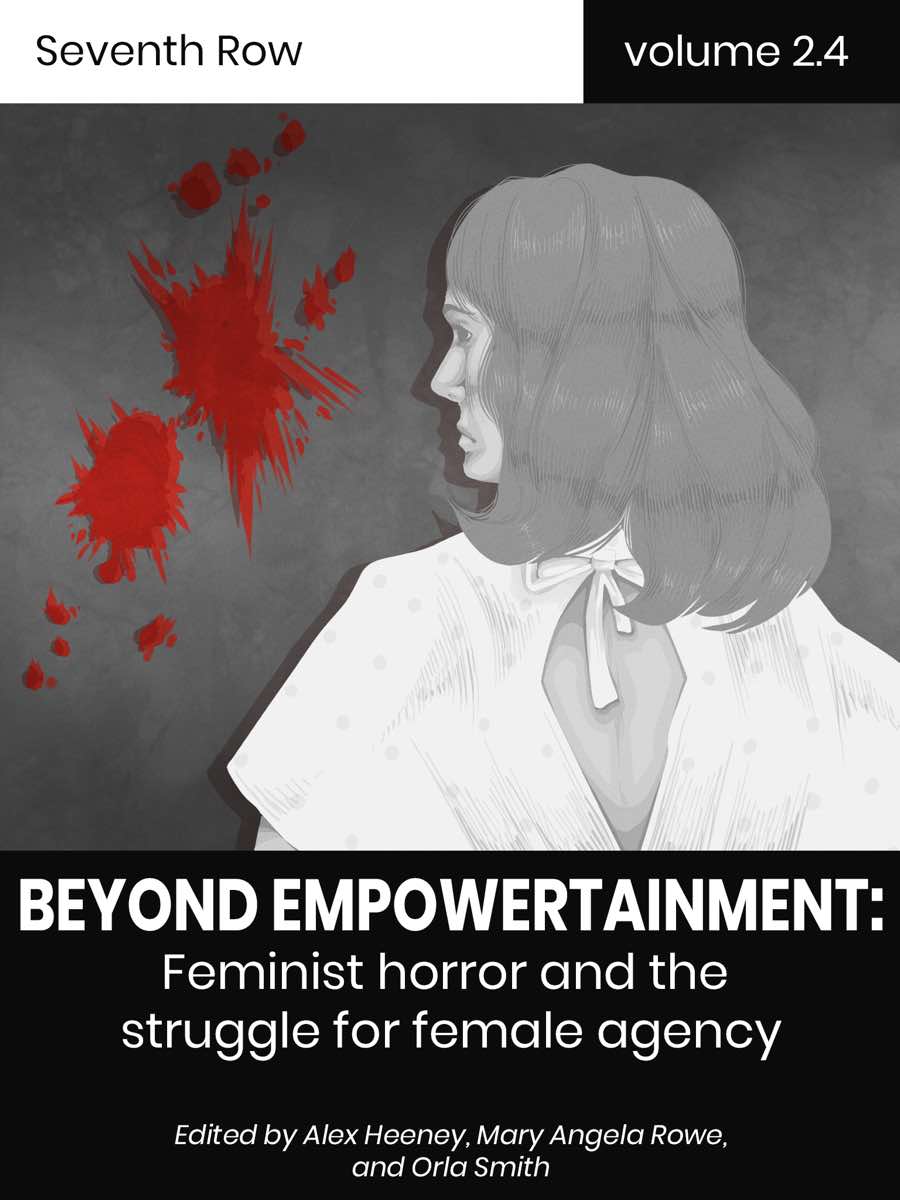Shadow in the Cloud is a strange Frankenstein of director Roseanne Liang’s feminist perspective and the ludicrous sensibilities of screenwriter Max Landis, who was removed from the project after numerous sexual assault allegations. Keep up to date with our TIFF ’20 coverage.

Discover one film you didn’t know you needed:
Not in the zeitgeist. Not pushed by streamers.
But still easy to find — and worth sitting with.
And a guide to help you do just that.
It’s worth addressing right up front that Shadow in the Cloud was originally Max Landis’s brainchild, and therefore, he is the top billed screenwriter, above director and co-writer Roseanne Liang. Last year, multiple allegations against Landis of rape, assault, and psychological abuse surfaced. Covering this film is not a decision that I, or Seventh Row, take lightly.
However, as far as I can gather, when the production heard of the allegations against Landis, they broke ties with him and distanced him from the project. Star Chloë Grace Moretz’s commented, “We’ve completely distanced ourselves from him. We’ve rewritten it several times now. His name is kind of far away from the project.” In another interview, director Roseanne Liang added, “I did struggle. I asked myself: Should I be doing this? I’ve made my peace with the fact that Max Landis wrote this movie. And I’ve made my peace with the fact that I also wrote this movie.”
The result is a strange Frankenstein of Landis’s ludicrous sensibilities and Liang’s feminist perspective. It’s sad and a little maddening that Liang had to work with the material of someone as despicable and untalented as Landis in order to get an action movie made, but here we are, in 2020, when women of colour still aren’t trusted to write their own original material.
Shadow in the Cloud is still a film worth discussing because of Liang’s contributions. She has an impressive knack for building tension. What’s more, she Trojan horses some feminist ideas into a fundamentally flawed premise — the full silliness of which she’s able to stave off until the film’s utterly terrible second half. Perhaps starting from scratch with Liang as screenwriter would have allowed her to create a vehicle for her ideas, rather than stuffing them into a framework created by an abuser.
The opening of Shadow in the Cloud explicitly deals with being a woman in a male-dominated field in a way that’s smart and nuanced, surely the sign of Liang’s input. Where so many action films with female leads simply insert their lead actress into a traditionally male role, here, Maude Garrett’s (Moretz) struggles, objectives, and heroic attributes are unique to being a woman. This is a World War II movie in which the sexism of Maude’s peers is as much of a threat — and as potent a source of tension — as the Japanese planes attacking the aircraft, or the supernatural monster that’s eventually introduced into the (admittedly very silly) script.
In a fun, genre context, Shadow in the Cloud explores how sexism needlessly compounds the larger, sometimes life-threatening forces you should be focusing on fighting against. When Maude boards a fighter plane leaving Auckland, New Zealand, her mind is set on protecting and transporting a mysterious briefcase with highly valuable contents. In a male-led action film, the tension would be clear cut from here: keep the briefcase safe while fending off assaults on the aircraft. But in Maude’s case, because she’s a woman, she has to deal with being undermined by her male colleagues on top of all that. The men can’t imagine a woman being capable of filling the traditionally male role of a flight officer. They dismiss Maude and shove her out of the way in the Sperry, a small compartment at the bottom of the aircraft that’s only just big enough for one person to sit.
While the men’s disbelief in Maude’s competence rings true, the film almost overcompensates for this by making Maude an expert in every aspect of aircraft operation while never explaining how she learned all this. They’re dead wrong to doubt her, the film insists, as Maude deftly fixes cracks in the Sperry, and later, pulls off death-defying acrobatics around the aircraft while demonstrating perfect aim with a firearm. It begs the question, does the film only think Maude deserves respect because she’s five times better at her job than the men are expected to be?

The film excels in its first half, which is set almost entirely in the Sperry, as Maude tries to get through the flight while fending off sexist remarks and fighting to be taken seriously in sometimes life-threatening situations. The men’s voices, relayed to the Sperry over an intercom, are an apt depiction of everyday sexism: an unseen but ever-present force distracting Maude when she needs to focus on essential tasks. Filling a crack in the Sperry’s window or, eventually, fighting off a malevolent intruder attached to the plane’s wing become difficult when there’s a voice in her ear jeering that she’s “hotter than the devil’s cock.” Maude can’t get a word in edgewise, even when she’s trying to warn the crew of imminent danger.
The intruder on the plane is a strange gremlin-like creature — which looks totally silly, especially given the not-so-realistic CGI, but works as a way to heighten Maude’s despair at not being believed. Since talking sense into them has thus far proved futile, Maude resolves to deal with the gremlin intruder herself without consulting them. The men would only mock her more if she tried to convince them of something so unbelievable.
This section of the film largely plays on Moretz’s face, an exciting directorial choice that works to keep us in Maude’s perspective. We’re with her the whole time, sharing her limited visual information; the windows in the Sperry show just a small part of the aircraft. Although the men hold the power, Liang gives cinematic power to Maude by staying with her, in the Sperry, prioritising her reactions and perspective over the men, whom we rarely see. Their voices jumble together into an indistinguishable mass of hoots and hollers, like a Greek chorus of misogyny ganging up on our lone hero. And Liang manages to constantly find new and exciting ways to shoot Moretz’s face and body, cramped into a tiny, restrictive space.
The film does a good job of drawing attention to the ways Maude fails to fit in with the traditional male action hero mould because she’s not taken seriously as a woman. In one of the film’s best moments, Maude stands up for herself against the men on the aircraft by giving a defiant speech. There’s a beat of silence after she finishes speaking, and we suspect that she’s shut them up — speechmaking in action movies typically asserts a character’s status as a hero and a leader. But not so in Maude’s case. The men respond with cackles and whoops of laughter, as well as the jab, “Her voice is like nails on a chalkboard.” It makes Maude’s situation feel even more hopeless than it did before, compounded by the fact that she can only talk to the men through intercom, which they have the power to shut off whenever they please.
The final two paragraphs of this review hint at plot details that are revealed halfway through Shadow in the Cloud.
Unfortunately, Shadow in the Cloud fails to pay off these ideas in the second half, when we leave the confines of the Sperry and Maude gets to flex her action muscles. It’s hard to stay invested in the film the more ludicrous and gravity-defying Maude’s antics become, especially after the thrillingly contained first act. What’s more, a disappointing plot revelation reframes the narrative so it’s no longer about Maude’s capability as a flight officer. Instead, her mission on the plane is revealed to be motivated by maternal love and an escape from spousal abuse. This only serves to make Maude’s miraculous skill at everything she tries her hand at more confusing, if in fact she isn’t actually a flight officer but an abused woman escaping her oppressor. For a film that felt so fresh in its approach to women heroes, it’s sad to see it fall back on the old cliche of a woman defined by motherhood and victimization.
Although I’ve no way of knowing which parts of the script are Max Landis and which are Roseanne Liang, it feels telling that Shadow in the Cloud is such a baffling mix of regressive cliches and truly exciting feminist material. Parts of it feel like stuff I’ve never seen before, even moments in the sloppy second half, like when Maude is shown breastfeeding, something that is rarely ever so casually depicted on screen. But still, even this moment is an example of motherhood being Maude’s first and only priority — even her heroic victory moment is overshadowed by her duties to her child. Overall, the good might just trump the bad, especially because it’s practically one of a kind: an action movie that works because its main character is a woman, not in spite of her womanhood.
READ: More coverage of the Toronto International Film Festival >>


